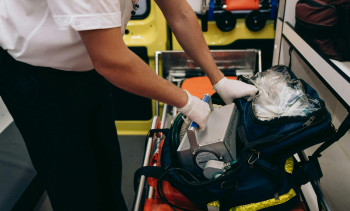
Responding to a Crisis: Understanding Opioid Overdose and the Role of Reversal Medications
The opioid crisis continues to pose a serious and growing threat to public health across the United States and beyond. With overdose deaths reaching record highs, the ability to recognize and respond effectively to opioid overdoses is a life-saving skill every healthcare provider—and even unlicensed caregivers—should possess.
The Opioid Overdose Epidemic
Opioids are a class of drugs that include prescription pain medications such as oxycodone, hydrocodone, morphine, and fentanyl, as well as illicit drugs like heroin. While effective for pain relief, these drugs carry a high potential for misuse, dependence, and overdose. Opioid overdose can quickly lead to respiratory depression, coma, and death if not rapidly treated.
Recent years have seen a troubling surge in opioid-related overdoses, often involving synthetic opioids like fentanyl. These potent substances require immediate medical intervention, emphasizing the need for broad awareness and training in overdose response.
Opioid Overdose Reversal Medications (OORM): What You Need to Know
Opioid Overdose Reversal Medications (OORM) are opioid antagonists—drugs that block the effects of opioids on the brain and restore normal respiration in an overdose victim. The most commonly known OORM is NARCAN® (naloxone), but other formulations such as KLOXXADO® (naloxone) and OPVEE® (nalmefene) are also vital tools in the emergency response toolkit.
These medications can be administered intranasally or via injection, and they work rapidly—often within minutes. However, proper administration and follow-up care, including rescue breathing and chest compressions when necessary, are crucial for effectiveness.
Education Saves Lives: Training for Nurses and Unlicensed Personnel
Responding confidently and competently in the event of an opioid overdose requires more than just access to naloxone—it demands knowledge, training, and preparedness. That’s where Pedagogy Education’s online courses come in.
For Nurses:
Opioid Overdose and OORM Administration for Nurses
This one-hour, $12 course is designed specifically for nurses and licensed healthcare professionals. It provides:
- A comprehensive overview of commonly used opioids and scheduled drug classifications
- Recognition of signs and symptoms of opioid overdose
- Identification of risk factors for overdose
- In-depth understanding of opioid antagonists and how they reverse opioid effects
- Instruction on administering both intranasal and injectable OORM
- Guidance on providing rescue breaths and chest compressions when needed
By the end of the course, participants will be equipped with critical, lifesaving knowledge to intervene effectively in an opioid overdose emergency.
For Unlicensed Personnel:
Opioid Overdose and OORM Administration – Online Inservice
This inservice is specially tailored for caregivers and staff who may not hold a nursing license but still play essential roles in patient care and safety. Understanding the basics of opioid overdose and how to respond could make the difference between life and death while waiting for emergency medical services to arrive.
Be Prepared. Be Informed. Be Empowered.
Whether you’re a nurse, a caregiver, or anyone working in healthcare, your ability to recognize an opioid overdose and respond with appropriate reversal medications is crucial. With opioid overdose rates showing no signs of slowing, now is the time to ensure you're ready to act when it matters most.
Enroll today in one of Pedagogy Education’s comprehensive and accessible online CNE/CEU course options:
- 💉 Opioid Overdose and OORM Administration for Nurses
- 👥 Opioid Overdose and OORM Administration – Online Inservice (Unlicensed Personnel)
Because knowing what to do in an emergency can save a life—and that life could depend on you.

